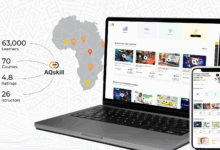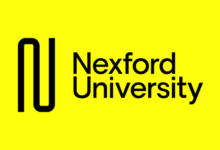Importance of acknowledged certificates for online courses

Furnishing one’s CV with a list of qualifications is essential to getting ahead in many sectors of the economy. This holds true throughout the world, including in Africa. Receiving a verified, acknowledged certificate for an online course makes that course a much more powerful tool in the eyes of employers. Internationally recognised certificates are particularly valuable, because they make it easier to use online courses not just in Africa but in other countries across the world.
The need for new and improved skills in Africa specifically
Studies have shown that ambition and entrepreneurship are thriving throughout the African continent, including throughout Sub-Sahara Africa. This was confirmed by the 2015 State of Education report, which was produced by UNESCO in collaboration with other organisations after extensive research. This report stated (p. 8) that it was in fact Sub-Sahara Africa that has made the greatest gains since 1999 in terms of children accessing education. In order for this ambition to materialise as something concrete, however, the right resources will be needed. Edtech, such as mobile apps and online courses (MOOC) is a fantastic (indeed, some might say essential) resource for developing and proofing skills. The beauty of e-learning is the fact that it enables poorly skilled people in areas with inadequate transport and education infrastructure to learn new skills without having to travel by participating in distance education.
Online course providers in Africa
Africa is home to a wide variety of online course providers, offering everything from language learning courses to management qualifications. It is worthwhile to divide these online courses into three key groups:
- Courses that offer no certificates
- Courses that offer certificates but do not offer acknowledged certificates
- Courses that offer acknowledged certificates
As established above, courses that offer acknowledged certificates (certificates that are internationally recognised or that are properly accredited) are superior to the other two types of courses on the list. One example of an acknowledged certificate is the IELTS English language teaching certificate.
Certificates and CV building
Building a good quality CV is crucial for ascending up the career ladder. Though some interview candidates can feel that having a large volume of certificates listed on their CV is a way of impressing employers, in fact this will mean little if those certificates are not acknowledged certificates. Employers and educational institutions tend to be very savvy about checking candidates’ CVs and identifying which certificates and qualifications are most trustworthy and respected. Additionally, possessing an acknowledge certificate makes it easier for an employer to compare you with other candidates who have the same certificate.
Paying for online education: consumer differences across Africa
Many Edtech providers such as Coursera want a fee for accredited certificates. Some consumers in Africa are able and willing to pay for certificates. These include students and entrepreneurs in richer areas, such as South Africa (Sub-Sahara Africa’s largest economy). However, in poorer areas of Sub-Sahara Africa, the majority of citizens are unable to afford to pay for a certificate. In countries such as Uganda, poverty is high and school attendance is low (72% of school aged children in Uganda are not in school). Demanding that customers pay for their certificates in countries such as these will only exacerbate an already existing gap between poor Africans with much ambition but fewer prospects and richer Africans who have the money they need to make their dreams reality and ascend through the career ladder. It is clear, therefore, that there are two viable solutions. The first is free distance education (for instance, mobile apps and other m-learning initiatives) or online education that is paid for by employers or universities rather than by the (often poor) students themselves.
Sensitivity to different requirements
Different target groups are happy with different levels of certification. For example, students wishing to apply for postgraduate studies in other countries will need internationally recognised certificates of their qualifications. Meanwhile, employers may require that current or potential employees undergo very specific in house or nationally designed training courses (which may or may not involve elements of e-learning and MOOC). For some Africans, on the other hand, a certificate will be nothing more than a physical way to mark the end of an m-learning course that they did for personal satisfaction, pure interest, or to learn new skills to help them in their work and daily life. Edtech developers and regulators need to be highly sensitive to these different requirements and their applicability to different target groups.
Compare e-learning options with a handy website
It is clear from the discussion above that the huge ambitions of Africans across the continent need to be put into action in order to build and improve African societies further for future generations. In today’s CV driven culture, accredited, acknowledged certificates are indispensable for proving to employers and educational institutions that a prospective student or employee has the necessary skills to complete the job or course of study that they are applying for – both in Africa and beyond. A wealth of online courses are available in Africa, and the market for them is growing steadily day by day. As such, students need to be able to compare courses and to find the one that best suits both their needs and their career ambitions. Visiting the website www.apps-for-learning.com is a fantastic way of finding and comparing educational apps and other e-learning technologies. Apps can be selected based on the learner’s region, the subject that they are interested in studying, and the level of recognition (for instance, international recognition) that they need for their qualifications. The best thing about these resources is that, whilst they offer accredited and acknowledged certificates, many of them are also free to use. This makes them perfect for poorer students in parts of Africa where a lack of educational infrastructure is letting learners down. Visit the Apps For Learning site today and start comparing educational resources.
M-learning is one of the relatively new applications which use the new internet and mobile phone based technologies to improve the access to some basic needs or skills, such as medical education, app based language learning or cheap online money transfers.
By the way: If you are interested in online money transfers, the leading providers and how it works, just check my remittance site.
This article was written by Jens Ischebeck. Jens is an African edtech specialist: Website publisher www.apps-for-learning.com. The website presents and compares e-learning and mobile learning providers with a special focus on the African market. Tags are e-learning, m-learning, online courses (MOOC), medical exam preparations (MCAT & USMLE). Follow him on social media: LinkedIn, Facebook, Twitter, Google and Medium
Read >> Africa is the edtech hotspot



